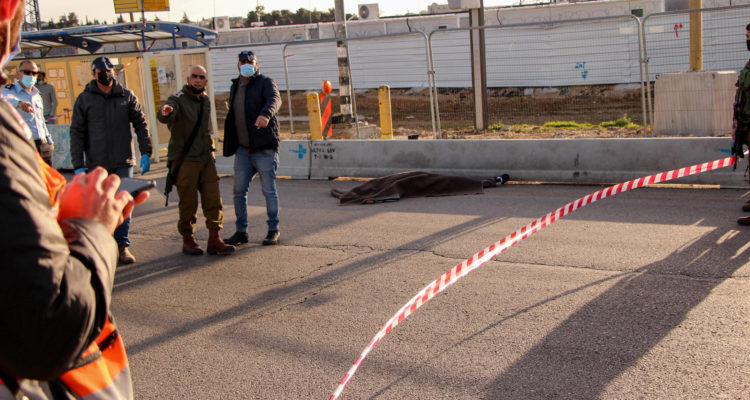In every field, from dairy production to satellite technology, Israel can help Africa to leapfrog over its deficiencies in infrastructure and make up for its lack of development.
By Ben Levitas, Lay of the Land
Although relations with Africa were low on Trump’s agenda, he set in motion some momentous foreign relations events that will have enduring consequences that offer the Biden administration some tantalizing opportunities to expand American influence in Africa. While Trump spoke of “pivoting out” of the region, it is likely that Biden will deploy more resources to Africa, both to counter China’s growing influence and because of the opportunities that Africa offers.
The historic events that overturned 72 years of hostility are the establishment of diplomatic relations between several Muslim majority countries and Israel. Known by the epithet as the “Abraham Accords”, which recognized the historic and cultural bonds shared by the Arabs and Jews, Trump managed to sweep aside decades of animosity and boycotts to inaugurate mutual recognition and diplomatic relations between the United Arab Emirates, Bahrain, and Israel.
This has set in motion a domino effect, influencing Muslim majority Morocco and Sudan to break their embargoes on relations with the Jewish State.
For the first time, direct flights from Tel Aviv to popular destinations in Morocco will commence and Sudan has granted Israel overflight rights.
It must be said that the “Abraham Accords” built on the fertile grounds when in November 2018 Chadian President Idriss Deby visited Israel and established diplomatic relation two months later. Immediately thereafter, Mali started a diplomatic push to improve relations with Israel and apparently Mauretania could be next. Israel already has diplomatic relations with 42 out of the 44 Sub-Saharan states.
What promise would be underpinning the “Abraham Accords” offer Africa?
We have seen how America has coaxed Sudan to follow the process, by removing it from the list of terrorist-supporting states. One of the first Executive orders of Biden was to remove the ban on travel by many Muslim states to the US, and this will immediately affect several African countries. Biden will be more predisposed to follow his Democratic predecessors who displayed an acute desire to be involved with Africa, particularly to eradicate disease, improve food security and the quality of lives.
Attracting foreign investment is still the biggest need for African countries to build skills and create jobs and America can be expected to be more amenable to be accommodative. Despite China’s impressive growth, America still has the deepest pockets. Furthermore, China is being very assertive in spreading its influence in the South China Sea and across Asia with the “Silk Road” which removes its foot from the pedal with regards to Africa and creates a possible vacuum for the United States to fill. Moreover, African countries may be more open to American investment, particularly having experienced the onerous consequences of allowing unrestrained Chinese investment, which has resulted in debt and in economic exploitation.
With the Biden administration promising to re-engage with the world and re-build alliances, it will surely strengthen relations with its strongest ally in the Middle East, Israel. Israel in turn has a tantalizing offering to address the most pressing problems faced by Africa, such as cleantech,cfood production and food security, sewage and sanitation treatments, andwater treatment.
Israeli Innovation
A recent report by the World Wide Fund for Nature lists Israel as the second most innovative country world-wide for clean technology, and the Global Cleantech 100 Index listed Israel as the world’s top innovator. With Global warming and the climate challenges, Cleantech is a necessary imperative to meet the Paris Agreement targets and covers the whole field of renewable energy technologies to make the world free from carbon emissions. Africa suffers from chronic power shortages and Cleantech will ensure that it is able to reach its economic growth targets in a sustainable way.
Israel’s prowess in desalination, where it operates the world’s largest desalination plants and has transformed itself from a water deficient country into an exporter of potable water, is well known. Less known is the fact that Israel recycles nearly 90 % of its sewage water for irrigation and industry making it a leader in the world. South Africa in comparison recycles less than 5 % and spews huge quantities of raw sewage into its rivers and seas. Israel treats sewage as a valuable commodity whereas in Africa it is a waste product that pollutes our water resources.
In agriculture, Israel has already built up a proud history of innovation in Africa such as making Kenya, Africa’s leading flower producer and introduced new varieties of vegetables, such as peppers and tomatoes and even seeds, such as the sesame. Israeli produced dripper lines are responsible for most of the food production in Africa and this is supported by Israeli agronomists, who have trained thousands of Africans and Israeli engineers planning, designing and building greenhouses.
In every field – from dairy production, where an Israeli company has taken control of Clover to satellite technology to facilitate communication – Israel can help Africa to leapfrog over its deficiencies in infrastructure and make up for its lack of development.
There is a time for everything, and this is the time to embrace the new paradigm that the “Abraham Accords” have unleashed for Israel’s new role in Africa.






